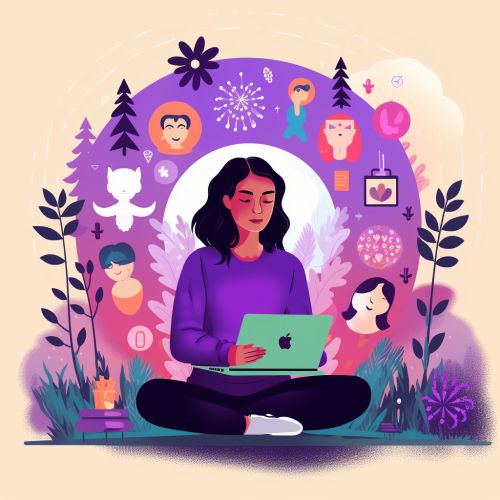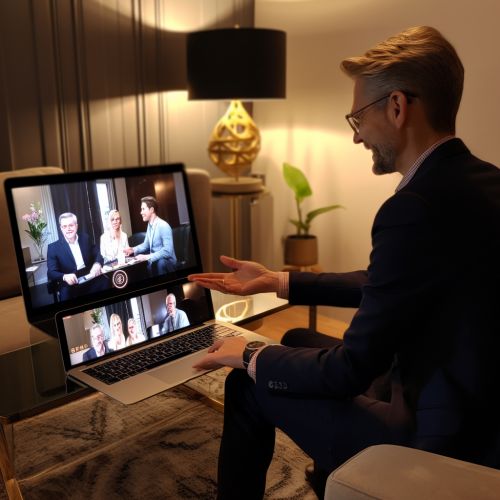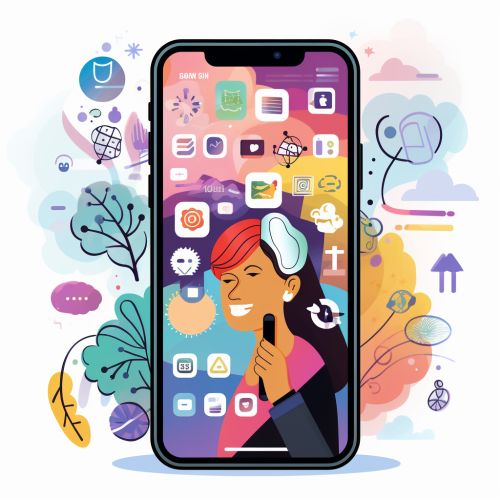Technology and Mental Health
Overview
Technology and mental health are two fields that have become increasingly intertwined in the 21st century. As technological advancements continue to revolutionize various aspects of human life, the impact of technology on mental health has become a significant area of study. This article explores the relationship between technology and mental health, focusing on both the positive and negative effects of technology on mental well-being. It delves into the role of technology in mental health care, the impact of digital technology on mental health, and the potential future developments in this field.


Technology in Mental Health Care
Technology has played a pivotal role in transforming mental health care. The advent of telepsychiatry, online therapy, and mental health apps have made mental health services more accessible to people who may not have had access to these services otherwise. These technological tools have also helped to reduce the stigma associated with seeking mental health care, as they provide a level of anonymity that traditional face-to-face therapy may not offer[^1^].
Telepsychiatry
Telepsychiatry, a subset of telemedicine, involves the use of video conferencing to provide psychiatric services remotely. This technology has been particularly beneficial in rural and underserved areas, where access to mental health professionals may be limited[^2^]. Telepsychiatry allows for real-time interaction between the patient and the psychiatrist, making it a viable alternative to in-person consultations.


Online Therapy
Online therapy, also known as e-therapy or cybertherapy, involves providing mental health services over the internet. This can be done through various mediums such as email, video conferencing, online chat, or internet phone[^3^]. Online therapy provides a convenient and flexible option for individuals who may have difficulty attending traditional therapy sessions due to factors such as physical disability, geographical location, or time constraints.
Mental Health Apps
Mental health apps are mobile applications designed to assist individuals in managing their mental health. These apps range from mood tracking apps, mindfulness apps, cognitive behavioral therapy (CBT) apps, to apps that connect users with licensed therapists[^4^]. Mental health apps have the potential to reach a wide audience and can be particularly beneficial for individuals who may not have easy access to mental health services.


Impact of Digital Technology on Mental Health
While technology has been instrumental in improving access to mental health care, its pervasive nature has also raised concerns about its impact on mental health. Research has shown that excessive use of digital technology, such as social media and smartphones, can have detrimental effects on mental health[^5^].
Social Media and Mental Health
The relationship between social media use and mental health is complex and multifaceted. On one hand, social media can provide a platform for individuals to connect with others, share experiences, and find support. On the other hand, excessive use of social media has been linked to increased levels of anxiety, depression, loneliness, and poor self-esteem[^6^]. Furthermore, the comparison culture perpetuated by social media can lead to feelings of inadequacy and low self-worth[^7^].
Smartphones and Mental Health
The ubiquitous nature of smartphones has also raised concerns about their impact on mental health. Studies have shown that excessive smartphone use can lead to sleep disturbances, anxiety, depression, and stress[^8^]. Furthermore, the constant connectivity facilitated by smartphones can lead to compulsive checking behaviors and fear of missing out (FOMO), which can negatively impact mental health[^9^].
Future Developments
The intersection of technology and mental health is a rapidly evolving field, with new developments continually emerging. Advances in artificial intelligence (AI) and machine learning are paving the way for more sophisticated mental health apps and online therapy platforms[^10^]. Furthermore, the use of virtual reality (VR) in mental health treatment, particularly in exposure therapy for anxiety disorders, is a promising area of research[^11^].
See Also
References
[^1^]: Yellowlees, P., & Shore, J. H. (2018). Telepsychiatry and Health Technologies: A Guide for Mental Health Professionals. American Psychiatric Pub. [^2^]: Hubley, S., Lynch, S. B., Schneck, C., Thomas, M., & Shore, J. (2016). Review of key telepsychiatry outcomes. World journal of psychiatry, 6(2), 269. [^3^]: Barak, A., & Grohol, J. M. (2011). Current and future trends in internet-supported mental health interventions. Journal of technology in human services, 29(3), 155-196. [^4^]: Torous, J., & Roberts, L. W. (2017). Needed innovation in digital health and smartphone applications for mental health: transparency and trust. JAMA psychiatry, 74(5), 437-438. [^5^]: Twenge, J. M., Joiner, T. E., Rogers, M. L., & Martin, G. N. (2018). Increases in depressive symptoms, suicide-related outcomes, and suicide rates among US adolescents after 2010 and links to increased new media screen time. Clinical Psychological Science, 6(1), 3-17. [^6^]: Vannucci, A., Flannery, K. M., & Ohannessian, C. M. (2017). Social media use and anxiety in emerging adults. Journal of Affective Disorders, 207, 163-166. [^7^]: Fardouly, J., Diedrichs, P. C., Vartanian, L. R., & Halliwell, E. (2015). Social comparisons on social media: the impact of Facebook on young women's body image concerns and mood. Body image, 13, 38-45. [^8^]: Elhai, J. D., Dvorak, R. D., Levine, J. C., & Hall, B. J. (2017). Problematic smartphone use: A conceptual overview and systematic review of relations with anxiety and depression psychopathology. Journal of affective disorders, 207, 251-259. [^9^]: Przybylski, A. K., Murayama, K., DeHaan, C. R., & Gladwell, V. (2013). Motivational, emotional, and behavioral correlates of fear of missing out. Computers in Human Behavior, 29(4), 1841-1848. [^10^]: Darcy, A. M., Adler, A., & Miner, A. (2020). A systematic review of machine learning methods for the prediction of depression. Annals of Clinical Psychiatry, 32(1), 55-69. [^11^]: Maples-Keller, J. L., Bunnell, B. E., Kim, S. J., & Rothbaum, B. O. (2017). The Use of Virtual Reality Technology in the Treatment of Anxiety and Other Psychiatry Disorders. Harvard Review of Psychiatry, 25(3), 103-113.
